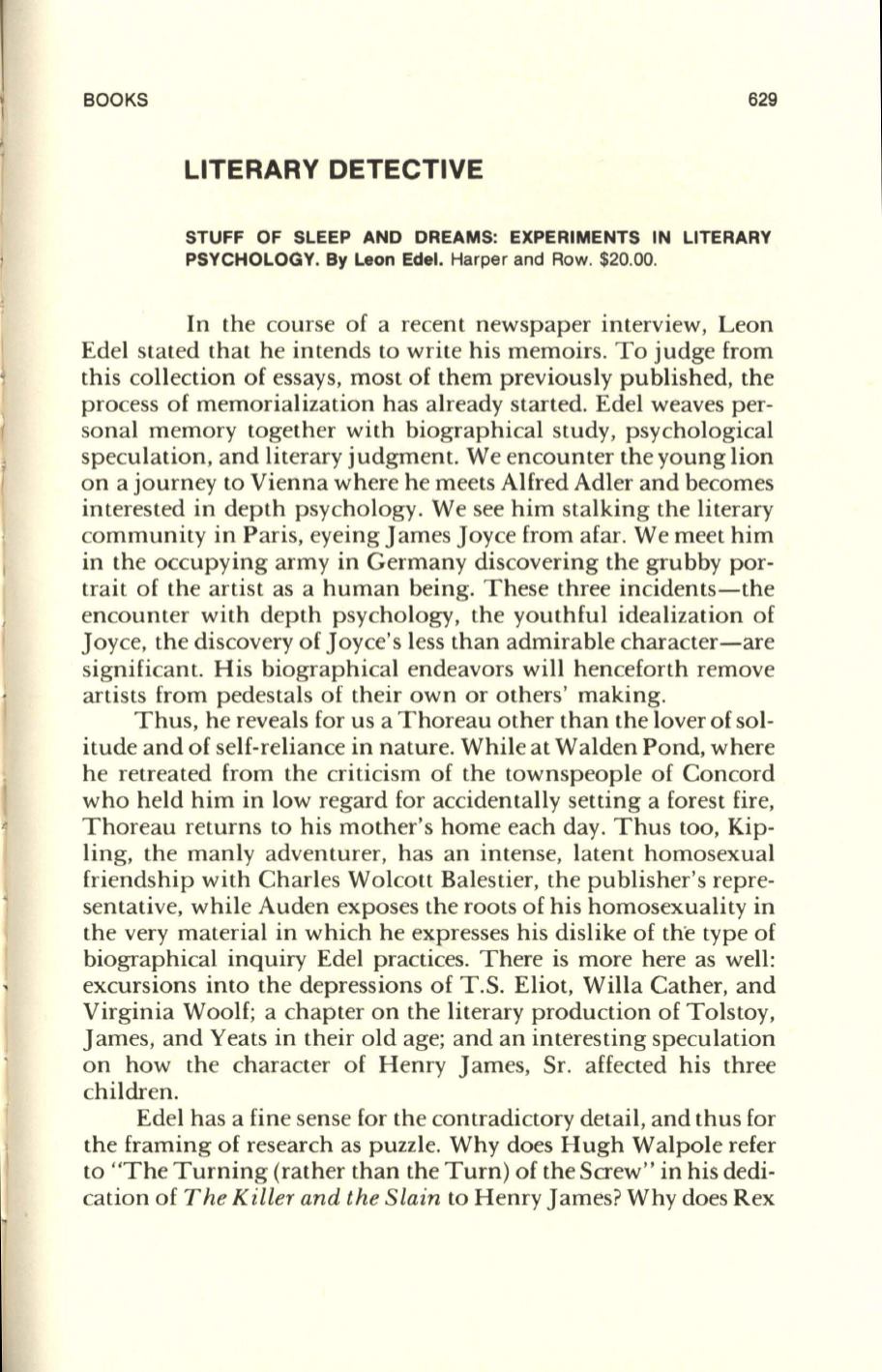
BOOKS
629
LITERARY DETECTIVE
STUFF OF SLEEP AND DREAMS: EXPERIMENTS IN LITERARY
PSYCHOLOGY.
By
Leon Edel.
Harper and Row. $20.00.
In the course of a recent newspaper interview, Leon
Edel stated that he intends to write his memoirs. To judge from
this collection of essays, most of them previously published, the
process of memorialization has already started. Edel weaves per–
sonal memory together with biographical study, psychological
speculation, and literary judgment. We encounter the young lion
on a journey to Vienna where he meets Alfred Adler and becomes
interested in depth psychology. We see him stalking the literary
community in Paris, eyeing James Joyce from afar. We meet him
in the occupying army in Germany discovering the grubby por–
trait of the artist as a human being. These three incidents-the
encounter with depth psychology, the youthful idealization of
Joyce, the discovery of Joyce's less than admirable character-are
significant. His biographical endeavors will henceforth remove
artists from pedestals of their own or others' making.
Thus, he reveals for us a Thoreau other than the lover of sol–
itude and of self-reliance in nature. While at Walden Pond, where
he retreated from the criticism of the townspeople of Concord
who held him in low regard for accidentally setting a forest fire,
Thoreau returns to his mother's home each day. Thus too, Kip–
ling, the manly adventurer, has an intense, latent homosexual
fri endship with Charles Wolcott Balestier, the publisher's repre–
sentative, while Auden exposes the roots of his homosexuality in
the very material in which he expresses his dislike of th'e type of
biographical inquiry Edel practices. There is more here as well:
excursions into the depressions of T.S. Eliot, Willa Cather, and
Virginia Woolf; a chapter on the literary production of Tolstoy,
J ames, and Yeats in their old age; and an interesting speculation
on how the character of Henry James, Sr. affected his three
children.
Edel has a fine sense for the contradictory detail, and thus for
the framing of research as puzzle. Why does Hugh Walpole refer
to "The Turning (rather than the Turn) of the Screw" in his dedi–
cation of
The K
i
lier and the
S
lain
to Henry J ames? Why does Rex


